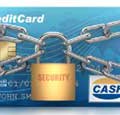Just like your personal credit score, a good business credit score is a crucial component of healthy finances. Having a good credit score as a business will unlock many benefits and savings, such as access to credit cards and loans with the most favorable terms. Suppliers, banks and lenders rely on your business credit reports to evaluate how credit-worthy your business is. When you have good business credit, then your business will have a safety net and it will make funding easier to access. To get you on the right track, here are five ways to establish good business credit as a start-up.
Obtain a Tax ID Number
Individuals will have a social security number, so your business should have its own tax ID number. Once you have got one, this number can be used to open bank accounts and forms, which will go towards your business’s credit history. You can obtain a tax ID number online. They are free and easy to do. Your business must be licensed to operate legally and you should create a business entity.
Create a Business Entity
Sole traders will not be eligible for business loans or credit and will only be able to borrow money via personal loans. These can be utilized for personal or business use, but it will not go towards establishing good business credit. To receive a business loan, you will need to separate your business and personal finances and credit history and set up a Limited Liability Company or Corporation.
Open a Business Bank Account
When it comes to improved credit for your business, a business bank account is key. A business will need to obtain a reference from a bank to build credit. A bank account must be open for a minimum of two years before you request a loan, so you should open one as soon as possible. This should indicate a mean of the daily balance cash flow, which has the potential to improve the company’s debt level.
Pay Invoices on Time
If you don’t pay your invoices on time, these late payments can contribute to poor business credit. If you are looking to enhance your credit score, then you should pay all of your suppliers, creditors, and lenders on time, without any excuses or failures. It is also important to remember that your business credit report will suggest that your company pays sooner, compared to the terms.
Don’t Use Too Much Credit
Most small businesses will need a loan at some point. If you haven’t got one already, then it will most likely be on your to-do list. Once your business becomes more established, you will not need to rely on borrowing money. Instead, you should invest back into the business, rather than taking out credit. When you use less credit, your credit score will increase, as it shows your company is financially stable.
Building up strong business credit should begin immediately and must be a priority for a business owner. Avoiding the use of your own credit and keeping track of your business credit is highly advised.









